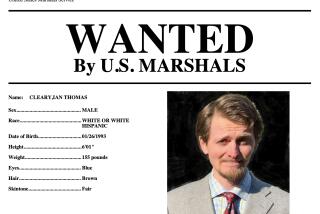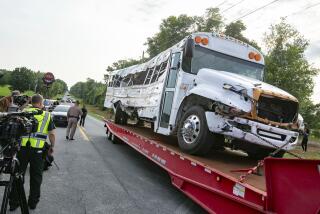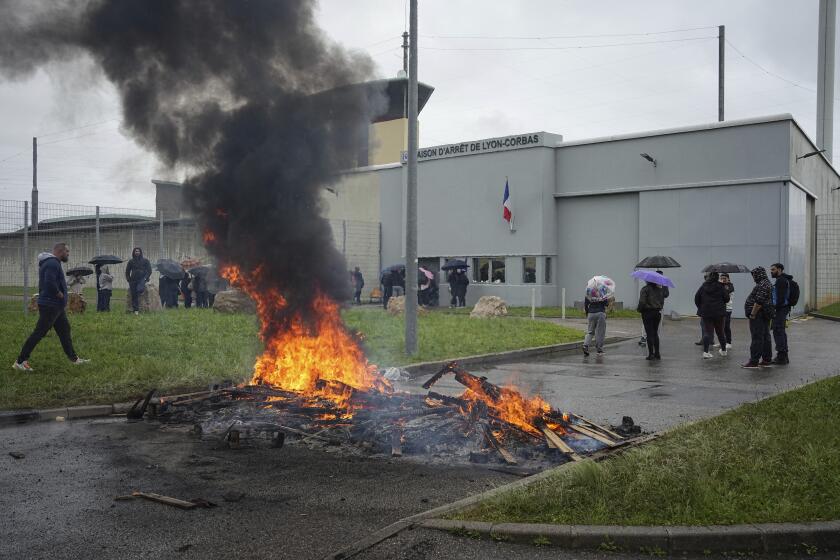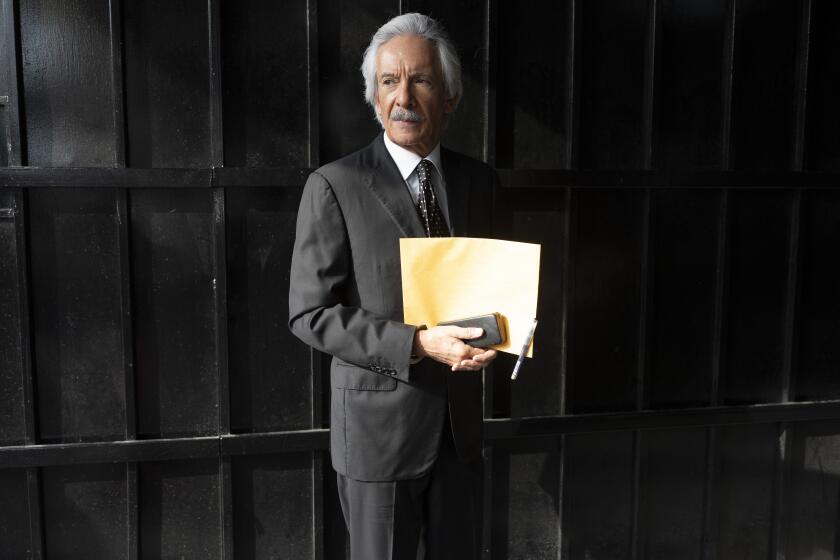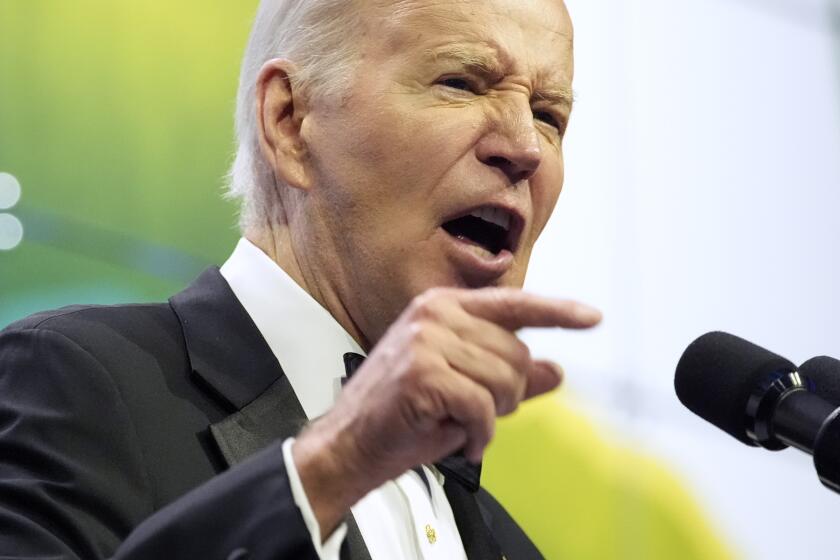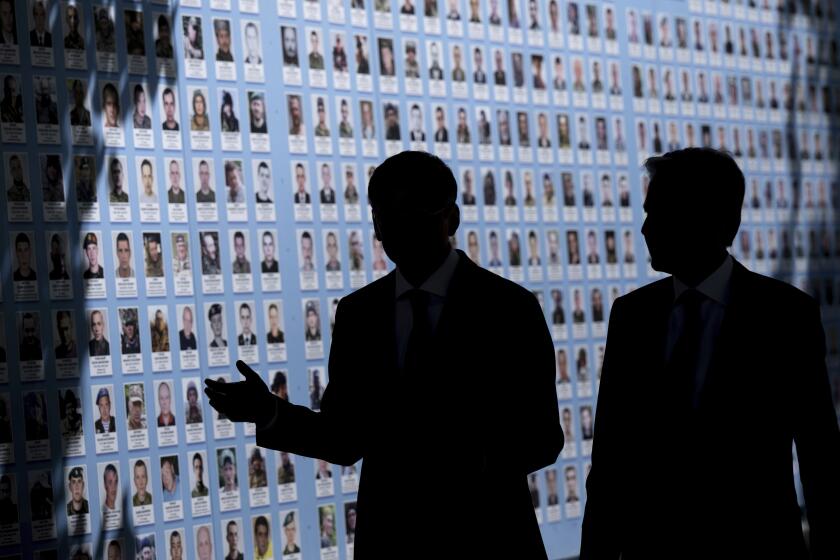Fla. Lawmakers Warn Bush on Cuba Policy
It has been a season of growing dismay and discontent among Cuban Americans. Some Cubans attempting to flee the communist island have been stopped and shipped back by U.S. authorities. Fidel Castro has cracked down with impunity on dissidents and independent journalists.
On Monday, a number of Republican state lawmakers from Florida publicly warned President Bush that unless U.S. policies changed drastically, he could lose their backing in the 2004 election. Some of the legislators accused Bush of not keeping campaign promises he made to Cuban Americans, a normally loyal Republican vote bank.
“No group of Americans should be taken for granted,” said state Rep. Gustavo A. Barreiro, a Miami Republican.
It is an article of faith among Cuban Americans, the nation’s only Latino minority that consistently votes Republican, that they tipped the balance in Bush’s favor in the 2000 election cliffhanger. About 80% of Florida’s Cuban Americans voted for Bush, who carried this key state by just 537 votes.
“The problem is, Bush has given them all the right rhetoric, but hasn’t delivered on the major policy initiatives he promised,” said Dario Moreno, a professor at Florida International University who has served as a consultant to Cuban American political candidates.
In a letter that was mailed and faxed to the White House on Monday, and whose contents were provided to the media, 13 GOP lawmakers -- Barreiro among them -- said that if current administration policies on Cuba continued, “we cannot guarantee that in next year’s election Cuban Americans will provide Republican candidates for federal office the unprecedented levels of support garnered in past elections.”
That does not mean the legislators, mostly Cuban Americans from the Miami area, might endorse or campaign for one of the Democratic presidential hopefuls, said state Rep. Marcelo Llorente, another of the letter’s signatories. But they might adopt a “neutral approach” where they do nothing to work for Bush’s reelection, Llorente added.
The lawmakers told Bush that he had not followed through on a pledge to review a controversial 1994 migration agreement between Castro and the Clinton administration, in which most would-be migrants from the island who are intercepted at sea are returned to Cuba. Those who make it to U.S. soil generally are allowed to stay.
In Washington, Sean McCormack, spokesman for the National Security Council, said Monday that he didn’t know whether the White House had received the letter, but he added that Bush was “firmly dedicated to a Cuba policy that will help the Cuban people in their struggle for freedom and democracy.”
The final straw for the legislators appeared to be the administration’s July 21 decision to send back a dozen Cubans suspected of hijacking a boat to try to reach Florida. In previous talks, the U.S. said it had received a pledge from Cuban authorities that the 12 would not be sentenced to death and that they would serve a maximum of 10 years in prison.
“My constituents are outraged,” said state Rep. Juan C. Zapata of Miami. “It’s hard for people to hear the president talk about freedom, then see the administration involved in having Cubans repatriated and in negotiating their sentences. It seems surreal.”
Bush’s brother, Florida Republican Gov. Jeb Bush, who was reelected in November with an estimated 84% of the Cuban American vote, already has distanced himself from the White House on the return of the hijacking suspects, calling it “just not right” to hand people over to an “oppressive regime.”
A visit to Miami by Otto J. Reich, the president’s new special envoy for the Western Hemisphere, also soured the mood for many Cuban Americans. At a conference Friday on the Cuban economy, Reich defended current U.S. immigration policy as necessary to protect the country -- and Florida in particular -- against a destabilizing flood of Cuban migrants and potential terrorist infiltrations.
Citing estimates among Cuban American politicians that as many as 4 million Cubans would leave their country if they could, Reich tried to convince his emigre audience that the U.S. policy of allowing most refugees to stay if they reach dry land was already as liberal as national security and the economy allowed.
Reich’s remarks drew an angry response Monday from Joe Garcia, executive director of the politically potent Cuban American National Foundation, which is leading the charge against administration policies on Cuba. “Never during the Cold War did we turn our backs on people fleeing repression,” he said.
In their letter to Bush, the GOP legislators specifically called for a revision of the 1994 U.S.-Cuban migration agreement, as well as more financial and technical aid for Cuba’s beleaguered democratic opposition; greater support for TV Marti, a daily anti-Castro video broadcast financed by the U.S. government; and the indictment of Castro in the 1996 downing by Cuban MiGs of two unarmed civilian aircraft belonging to exiles. Four people, including three U.S. citizens, were killed.
Concerns of Cuban Americans have been greatly heightened since a crackdown in March by Havana authorities against dissidents, journalists and independent librarians and the executions in April of three men found guilty in a summary trial of trying to hijack a ferry to Florida. Still, the exile community is divided over whether welcoming every refugee will help bring reform in Cuba.
“If you continue to let people out, to let the steam out, you get rid of the people who oppose the government,” said Maria Werlau, head of the Chatham, N.J.-based Orbis consulting company.
Nevertheless, the feeling appears widespread in Little Havana that Bush hasn’t lived up to commitments he made while stumping for votes. “We’re basically saying, ‘Mr. President, you came here and campaigned in the Cuban American community, and made these promises,’ ” Zapata said. “We’re asking now that these promises be kept.”
The White House response could spell the difference between a 50% or a 70% Cuban American turnout on election day 2004, the Miami lawmaker said -- enough to “signify the difference in a very divided state.”
Times staff writers Carol J. Williams in Miami and Maura Reynolds in Washington contributed to this report.
More to Read
Start your day right
Sign up for Essential California for news, features and recommendations from the L.A. Times and beyond in your inbox six days a week.
You may occasionally receive promotional content from the Los Angeles Times.
